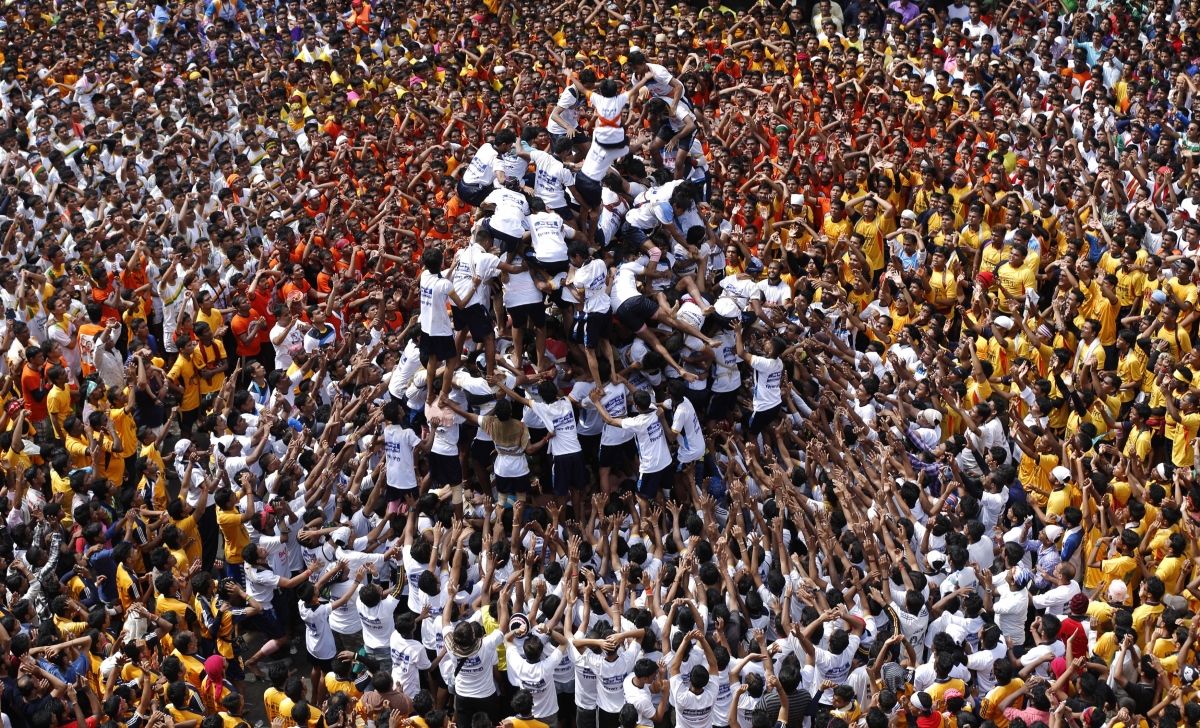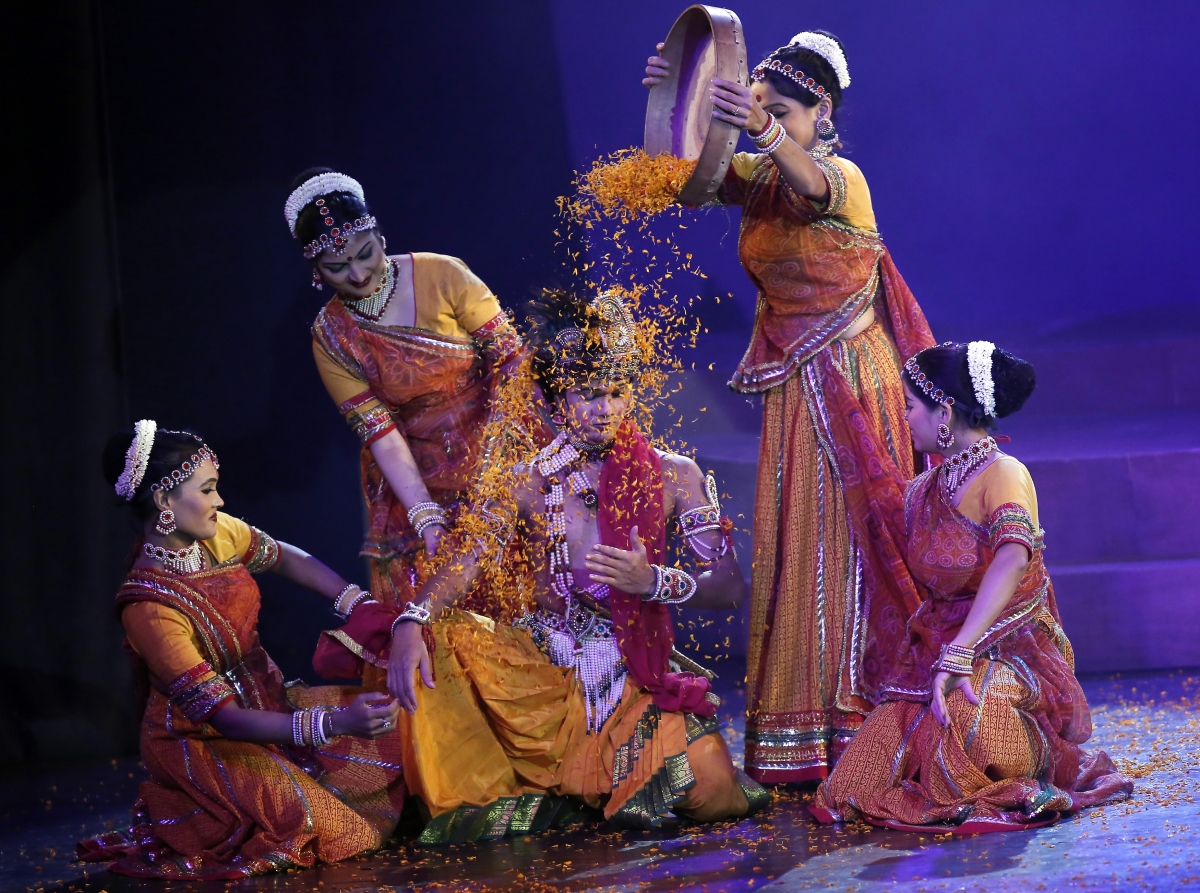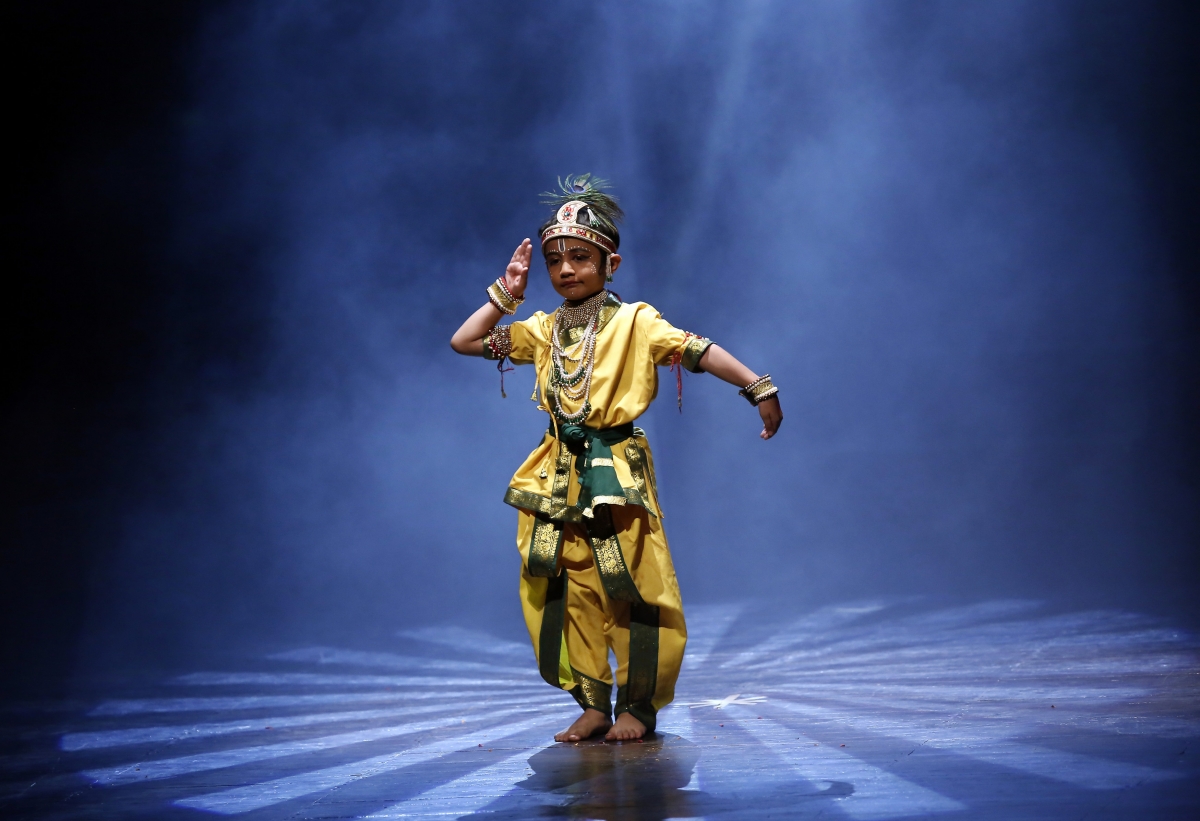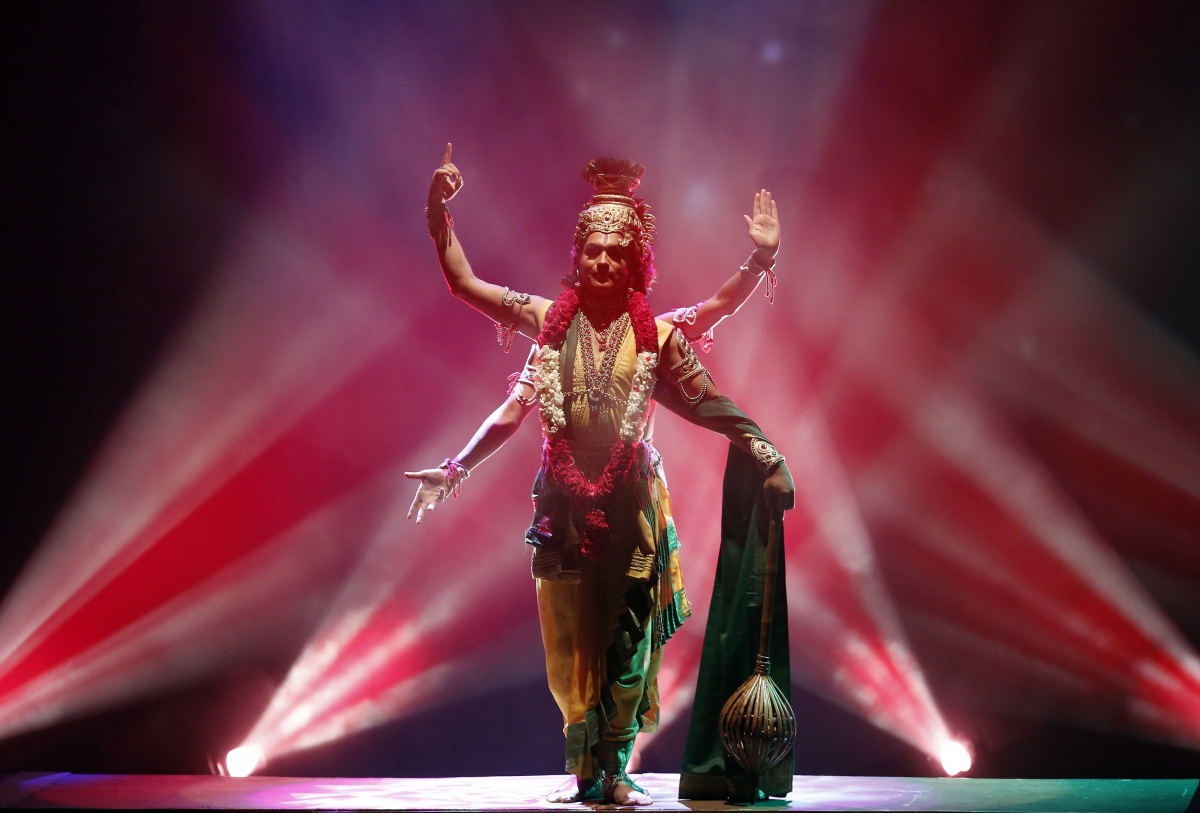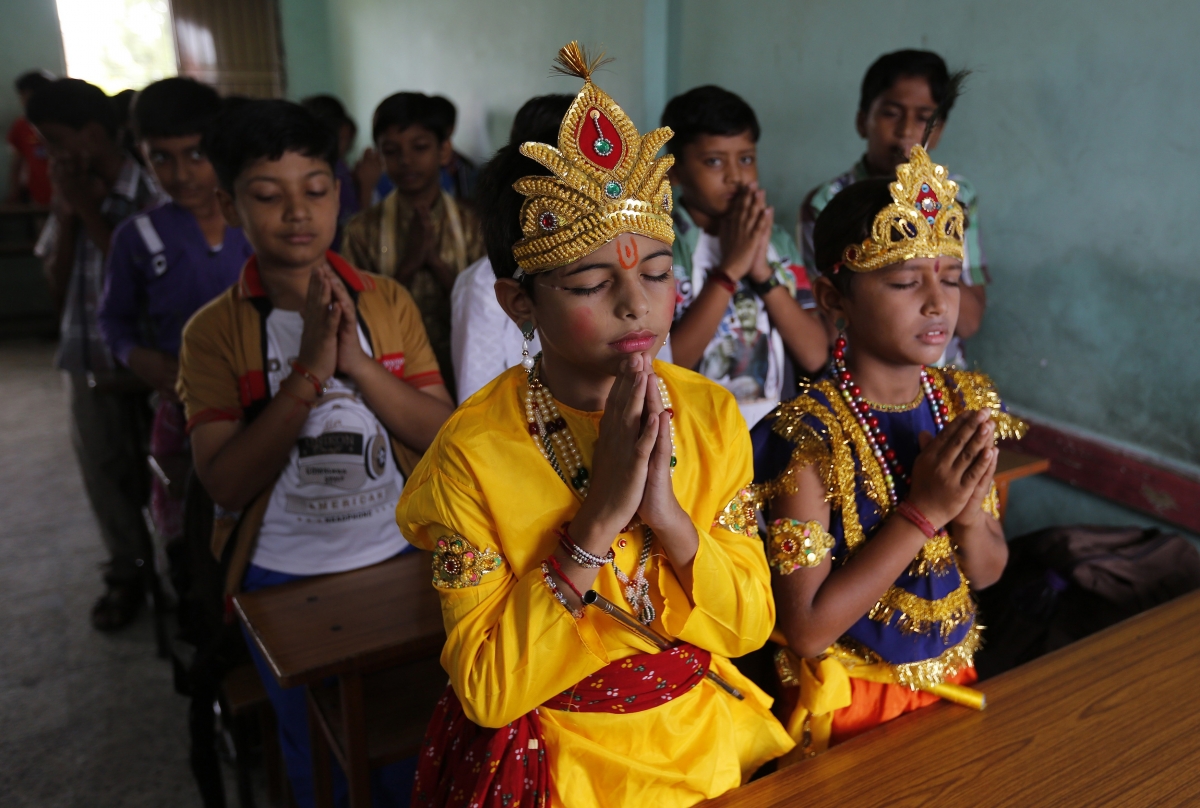Krishna Janmashtami is observed on the birth anniversary of Lord Krishna. And this year, the festival was celebrated on Sunday by devotees across the country.
Krishna is the eight incarnation of Lord Vishnu as described in Hindu scriptures. He was born on the 8th day of the the Shravan month, which in the Indian Calendar is known as "Ashtami". And with Janma meaning "birth", the day is celebrated as Janmashtami. The festival is also popularly known as Srikrishna Jayanthi and Gokulashtami, Saatam Aatham and Ashtami Rohini.
The famous Dwarkadheesh Temple in Mathura, which is believed to be the birth place of Lord Krishna, is beautifully decorated with flowers on this day as thousands of devotees plunge into the temple to offer their prayers to the lord. The deity is bathe with milk, honey, curd and ghee on the day of Janmashtami that last for half an hour.
While devotees worship the lord, Dahi Handis and Rasa Lila are some key attractions of the celebration.
To celebrate Dahi Handi, an earthen pot filled with buttermilk is tangled at a particular height and it is not easily approached by people. A human pyramid is formed in order to break the earthen pot and is popularly celebrated in Maharashtra. Dahi Handi is celebrated to mark the playful nature of Lord Krishna as he steals butter from his gopis (milkmaids).
Earlier this year, the Supreme Court had prohibited children below the age of 12 from participating in Dahi Handi as they form huge human pyramids.
The apex court took the decision of restricting children below the age of 12 years from participating in human pyramid, while putting on hold the Bombay High Court order which banned children below the age of 18 years should be barred from taking part in human pyramids.
"I have seen it for 13 years. These MLAs come and give awards of Rs.1 lakh or so and young people go crazy. So many people fall down," India Today quoted Chief Justice Lodha, Bombay High Court judge from 1994 to 2008.
Rasa Lila is a dramatic play that depicts the tale of Krishna and his life as described in Hindu scriptures. Ras Lila is performed especially in the UP regions of Mathura and Vrindavan.


